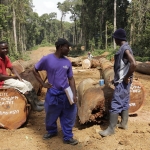Phillipines: Lawmakers Vote to Label GMOs
MANILA, Philippines -- If you are selling a product that contains genetically modified organisms (GMO) in the Phillippines you may soon have to label it "genetically engineered" or go to prison.
Up to 12 years in jail plus a $2,000 fine is the penalty for failing to label that was passed bys the Philippine Congress Tuesday. The bill requires the labeling of GMO derived food and food products.
Under the bill, violators could be imprisoned for not less than six years but not more than 12 years. If the offender is an alien, he or she can be immediately deported without need of any further proceedings.
Congressman Del de Guzman of the city of Marikina introduced the Genetically Engineered Food Right to Know Act, which demands that food and food products containing genetically modified organisms or those produced through genetic engineering technologies be labeled as such.
"It came to my attention that there are many products available in local markets that were sent to Hongkong for laboratory testing have been tested positive for GMO contamination," de Guzman said in a press statement.
Last year, the environmental advocacy group Greenpeace said that 11 popular food products in the country were tested positive for GMO contamination. The latest to be identified GMO positive is Nestle's infant product Cerelac Wheat.
In addition, GMO products like canola oil and potato chips have found their way to the stomach of Philippine consumers "The bill will give meaning to the right of our people to know if what they eat have been modified by modern biotechnology," the congressman said. "Consumers have the right to know the contents of the food items they buy and then decide for themselves whether to buy or not, he added.
In the Philippines, most buying consumers have little knowledge of GMO issues, neither pro nor con. The debate regarding the safety of GMOs is on the level of the academe, professionals and some safe food advocates.
Agricultural professor Bony Ligat of the Benguet State University says, "There have been so many discussions regarding GMOs. But these are mostly within the walls of universities and colleges, he says, and not many consumers and farmers are aware of the advantages and disadvantages.
The stand of the Philippine government as well as the Department of Agriculture is pro GMO. Only the non-government organizations have taken the task to bare the loopholes of the current legislation, Ligat said.
Some Benguet farmers, unknowingly, are now planting genetically engineered vegetable crops. The province of Benguet produces almost 70 percent of the vegetables in the Philippines.
De Guzman is doubtful about the safety of GMOs and GMO products. "The safety of GMOs has not been established conclusively. I felt it was necessary to pass a law that will require all products to be appropriately labeled."
Last March, Senator Wigberto Tanada called for the Senate to require the labeling of GMO products especially because many Muslims suspect some of the food commodities they buy are laced with pork ingredients. Muslims, by call of religion, do not eat pork. There are more than six million Muslims in the island nation, among the roughly 80 million Philippinos.
Critics of the labeling bill are mostly food manufacturers and importers. "It will cause a drop in sales, no doubt. When consumers start questioning your products, they hesitate to buy," a top salesman of Purefoods said on condition of anonymity. Purefoods is one of the top five food makers and importers in the country.
"GMO products are being misunderstood. In fact, they ensure food security," he added.
Congressman de Guzman replied, "Global food production is one and a half times more than what is necessary to feed the burgeoning world population. GMO food and food products is not needed, many food experts say."
"Worse, the promise held out by GMOs may turn out to be more harmful to human health than their perceived benefits," the congressman said.
Already, de Guzman's bill has gathered popular support from NGOs advocating for food self-reliance and sustainability.
Members of MASIPAG, a nationwide organization of farmers and scientists, and Sibol Agham at Teknolohiya, an NGO providing ecologically safe farming technologies, have rallied in the streets to support the bill.
Many countries like Japan, South Korea, Indonesia, New Zealand, Saudi Arabia, Russia, 15 countries of the European Union, Mexico, Israel, Taiwan, the Czech Republic and Norway have mandatory laws which call for labeling of GMO products.
Global companies are starting to remove genetically engineered ingredients in their foods, particularly in USA, Canada, Japan, Brazil and Europe. Large food supermarkets have cleared their shelves of "genetically-tinkered food items," de Guzman said.
- 181 Food and Agriculture



